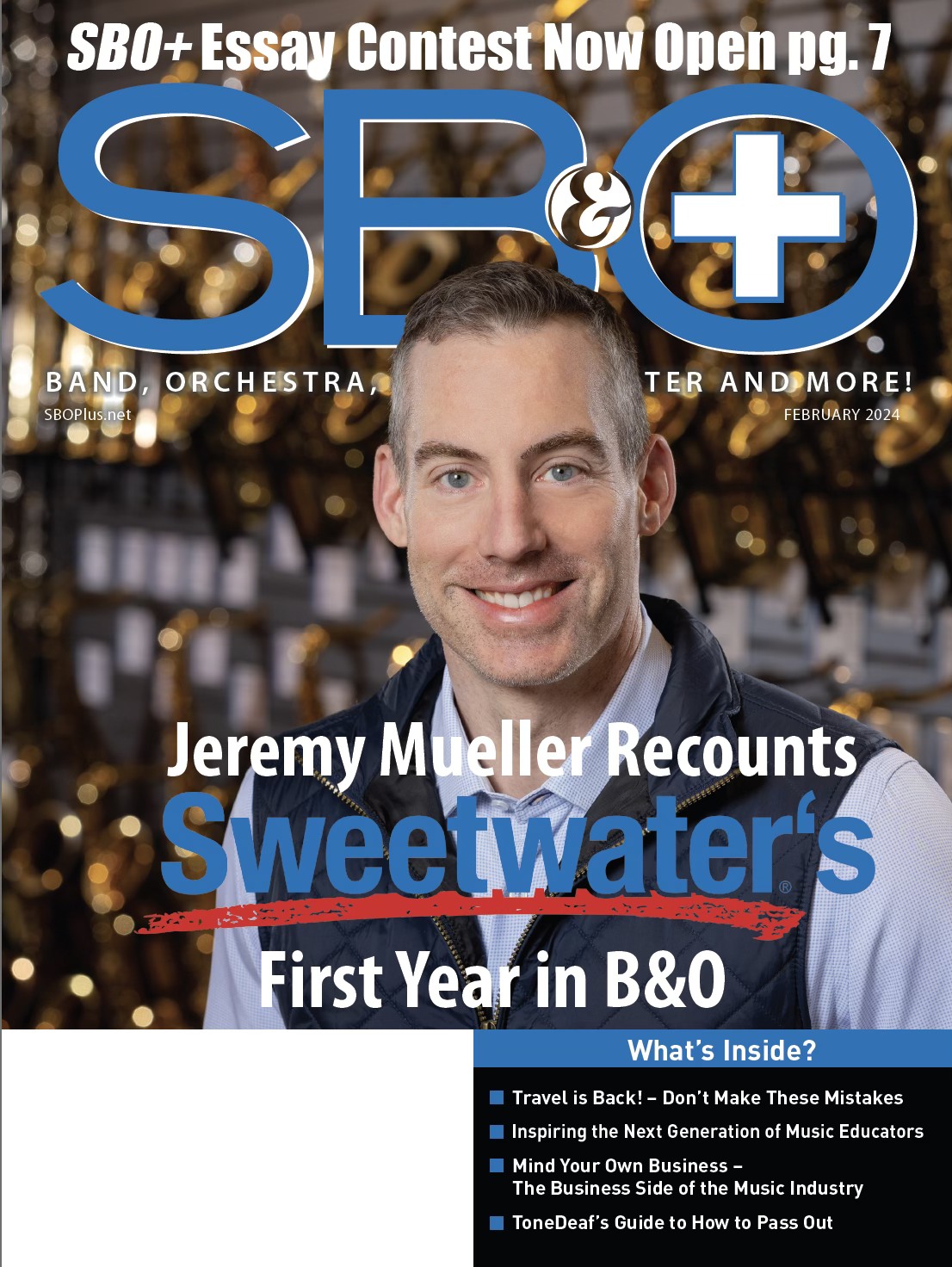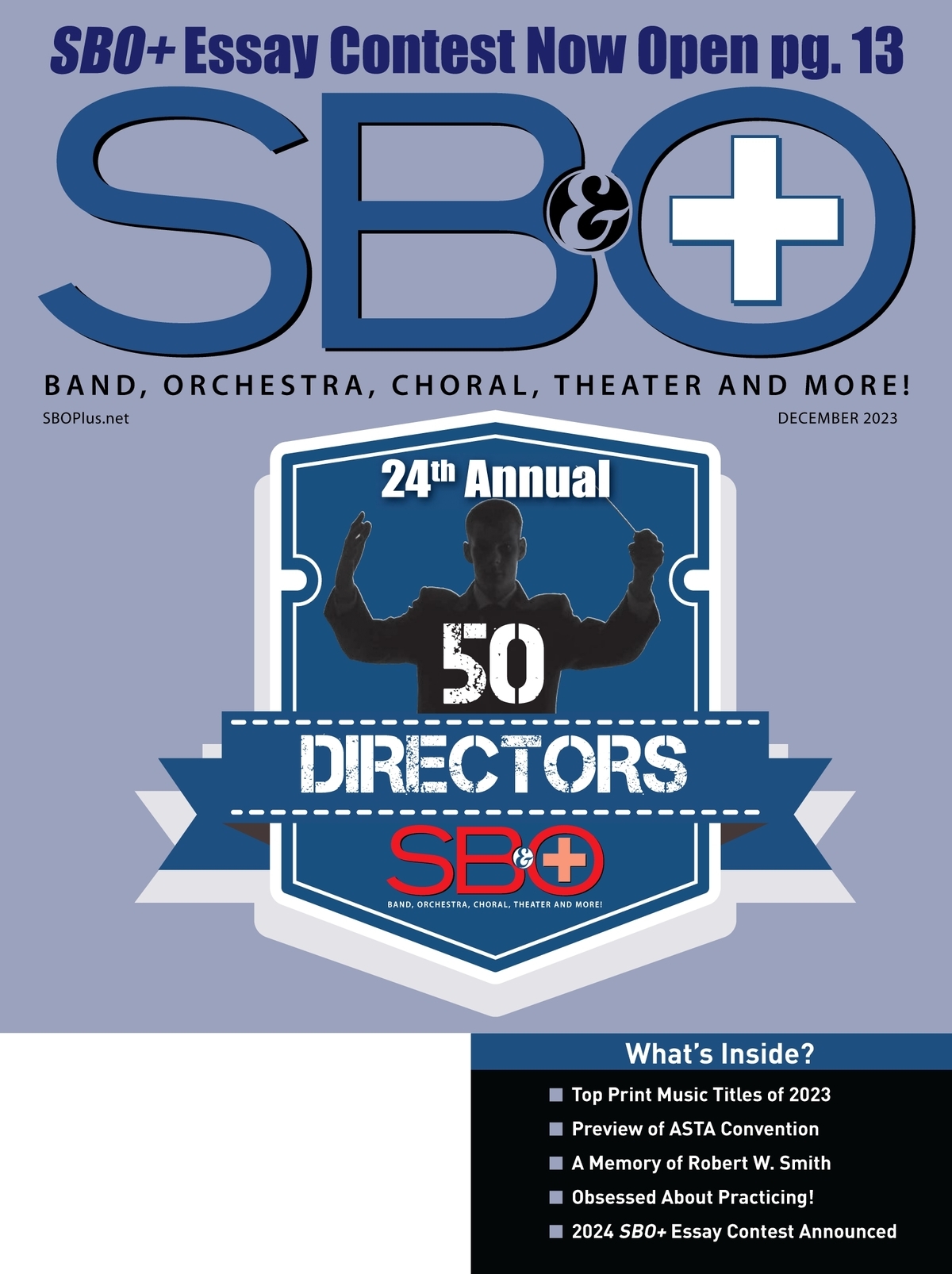EDUCATORS SUBSCRIBE FOR AS LOW AS $0.00! CLICK HERE!

Since its inception, the Nashville Symphony has maintained a strong commitment to music education reflecting their fundamental belief that the arts can have a tremendous impact on both individuals and communities. They provide approximately 100,000 hours of service each year to tens of thousands of middle Tennessee youths and adults through an array of programs that are designed to engage, enrich, and inspire.
 Their Grammy-winning orchestra performs on stage in the concert hall more than 100 nights each year and serves as tangible proof of the importance of a quality music education.
Their Grammy-winning orchestra performs on stage in the concert hall more than 100 nights each year and serves as tangible proof of the importance of a quality music education.
In September, they introduced a new initiative designed to take the Nashville Symphony’s music education efforts to an entirely new level. Accelerando is a landmark music education program designed to prepare gifted young musicians of diverse backgrounds to pursue music at the collegiate level and beyond.
The reason that they are launching this program is because American orchestras today do not typically reflect the rich diversity of their communities. While ethnic minorities make up roughly 30 percent of the U.S. population, the League of American Orchestras estimates that only 5 percent of U.S. orchestral musicians represent people of those backgrounds. This disparity is due to a lack of access. Youth from these underrepresented groups do not always have the resources and opportunities they need to develop their talents and fulfill their potential.
Thus, the ultimate goal of the Nashville Symphony’s Accelerando program is to provide these resources and in the process build a pipeline of talented musicians from diverse backgrounds, who will form the next generation of American orchestral musicians. To address this need, the Nashville Symphony has teamed up with several local partners, which include Vanderbilt’s Blair School of Music, Metro Nashville Public Schools, Conexion Americas, and Choral Arts Link, to develop the Accelerando Initiative.
This program, which begins in 2016, will address that critical issue of access by creating high-level learning and development opportunities for music students through instruction, mentorship, performance, and much more. Accelerando will assist in the growth of these music students, starting as early as the fifth grade, and will stay with them every step of the way, straight through high school and beyond. They will have unique access to the vast resources and proud tradition in the musical training of both the orchestra and its unique location in Music City USA, and they will be given the guidance and training they’ll need to ensure a music future that is befitting of their talents.
 Walter Bitner is the director of education and community engagement at the Nashville Symphony. SBO sat down with him in his office at the Schermerhorn Symphony Hall to find out more about the Nashville Symphony’s new educational program, Accelerando.
Walter Bitner is the director of education and community engagement at the Nashville Symphony. SBO sat down with him in his office at the Schermerhorn Symphony Hall to find out more about the Nashville Symphony’s new educational program, Accelerando.
Tell us about the symphony’s newest educational program, Accelerando. First of all what was the impetus, the idea, when did this all start?
When I first came, last fall, I participated in a lot of strategic planning discussions with my colleagues here at the symphony from all the different departments. The Nashville Symphony is engaged, and has been engaged, in a very long-term strategic plan, to position us to grow along with the Nashville community. There’s an organization called Nashville Next that has generated, sort of, a vision of where Nashville is going to be in the next generation, the next 25 years. And they’re predicting really dramatic growth and change in the population, and in the demographics of the population. And there was a lot of concern here at the symphony that we continue to grow with the city, and be positioned to meet what the Nashville population, what it’s going to look like in a generation.
So what became very obvious to all of us as we studied these documents is that our ethnic and cultural and socioeconomic demographics are going to change dramatically, too. And so this question of diversifying the orchestra has become more and more something on the tips of people’s tongues in conversation. Not just at the Nashville Symphony but in orchestras across the country. As our nation becomes more and more diverse, orchestras feel very strongly that we need to be reflecting that diversity of our communities on the stage, in the music that we present and in our programming.
So I was brought here to run the symphony’s education and community engagement programs, and my background is as an educator. So the biggest question for me has been how can I help the symphony position itself as a leader in music education, in a way that’s deeply meaningful in the community? To demonstrate excellence, because the symphony is all about excellence, to demonstrate excellence in music education in a way that merges with this emerging question of diversity. And Accelerando really grew out of that, that question because I feel that to be taken seriously as music educators, the symphony has to provide direct instruction and demonstrate excellence in that. And if we are going to promote diversity in our audience, in the musicians who take their places with the orchestra on the stage, then we need to be making an effort, to provide instruction to people from diverse parts of the community.

Are there enough child violinists, for example, in Nashville from a variety of different ethnic backgrounds that you think you can easily fill this?
My experience as a teacher in the public schools here convinced me that we have these students in our community. Musical aptitude is really pretty common, most people can carry a tune and of course some people have a greater facility for it than others, but I think that, that’s not the question, the question is really finding the students who have the aptitude and the drive and motivation to want to pursue a career. And have a support system with their family or otherwise their home life that will enable them to get the skills that they need before they go to college, to pursue that kind of training. As far as who we wish to reach, the goal of the program is to reach students who are from underserved backgrounds traditionally in the orchestra. So there’s this idea that people who come to hear the orchestra will feel a stronger connection to the music if they see people on the stage that look like them. So we will be hoping to find students from ethnic minorities that are not traditionally associated with orchestras in the United States. That is to say that’s who we’re targeting, still we’re going to look at every application regardless of ethnicity.
How many seats will be in your inaugural class?
Six seats. We hope we can find six, yeah. We won’t be just accepting warm bodies, they really need to qualify as it will be a rigorous program.
So you’re looking for kids who have been through Suzuki already or been through some level of personal training?
The requirements for auditions are something that’s going to be worked out by our faculty committee this fall. And I think it’s going to be — it’s difficult to judge a child’s potential the younger they are and the less accomplished they are, but the younger they are the more time they would potentially have in the program and be able to benefit from it.
 So how long is the program?
So how long is the program?
Well children will be allowed to audition as young as fourth grade to enter the next year in fifth grade. So it’s quite possible that students could be in the program for eight years if they were to enter in fourth grade. We have a general outline and students will be required to perform a jury each semester. So there will be assessment built in. The faculty committee, which is comprised of the Nashville Symphony musicians, will be talking about, over the next couple of months, exactly what will go into those juries, what will be expected. So the idea is that if a child is in good standing, if their attendance at their lessons is good, they’re practicing between lessons and preparing and making steady progress, their performances on their juries are good each semester, then they would stay in the program. However, after a child’s sophomore year they will have to reapply. It’s not an inexpensive program and the expenses mount in junior and senior year. In high school, those are the years especially that students…we would hope to be sending students to summer music camp like Brevard or Interlochen, things like that.
And then in their junior year we would try to identify the target schools that the child is going to apply to for music school. And send them at least to a couple to take trial lessons with professors they’d be auditioning for when they are juniors. And then after their junior year they would need to reapply once more for their senior year, when we would also be sending them to their audition themselves. So the goal is to send students to conservatory or music school at major universities to earn degrees in music performance and become professional classical musicians, and we know that children change their minds when they are growing up. And so if a child is in the program for a few years and then decides that they really want to go onto another field, then they should leave the program to make room for somebody else.
What instruments do you expect will be most auditioned by hopeful students?
I’m personally expecting that most of the students who audition are going to play woodwind and brass instruments as the band programs in the schools are very strong in that however we are also hoping that this program will inspire students who are interested in playing string instruments and maybe help to revitalize our string programs in the schools here.

When will the audition process begin?
We’ll start the audition process in March. My expectation is it’s going to be a two-tier audition process. The first audition will be students will play for a panel of orchestra of musicians, and then when those auditions are over we’ll have call back auditions, and those auditions will be one-on-one students playing for respective teacher they would study with in the orchestra.






